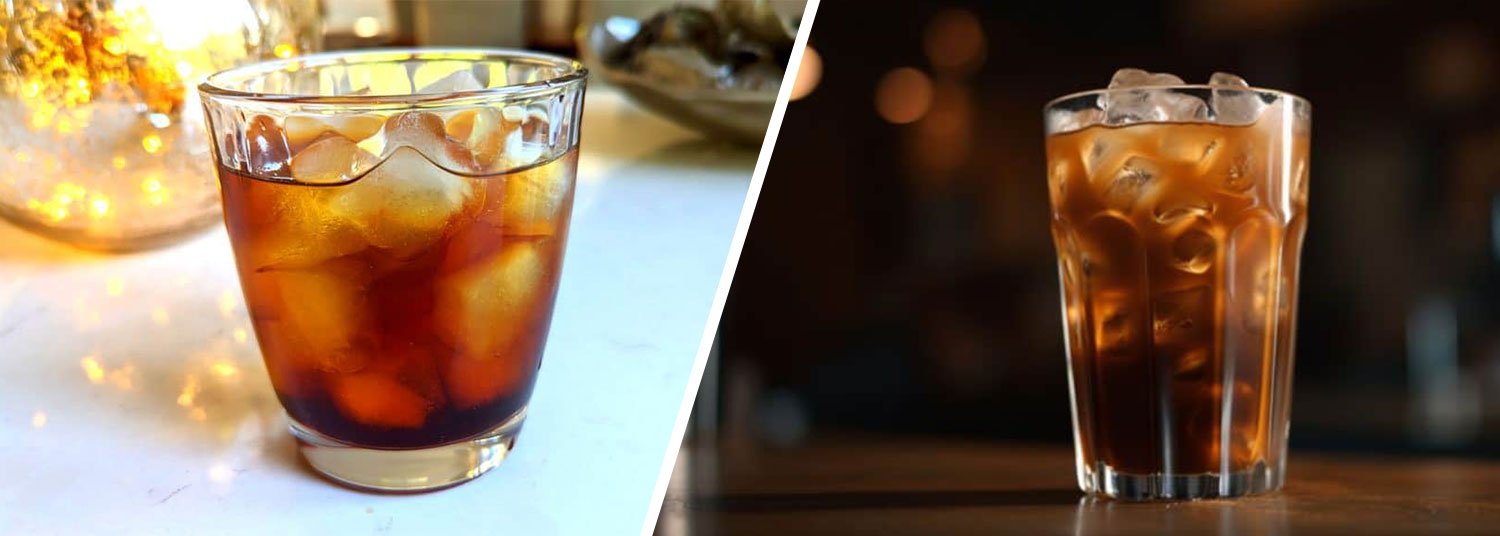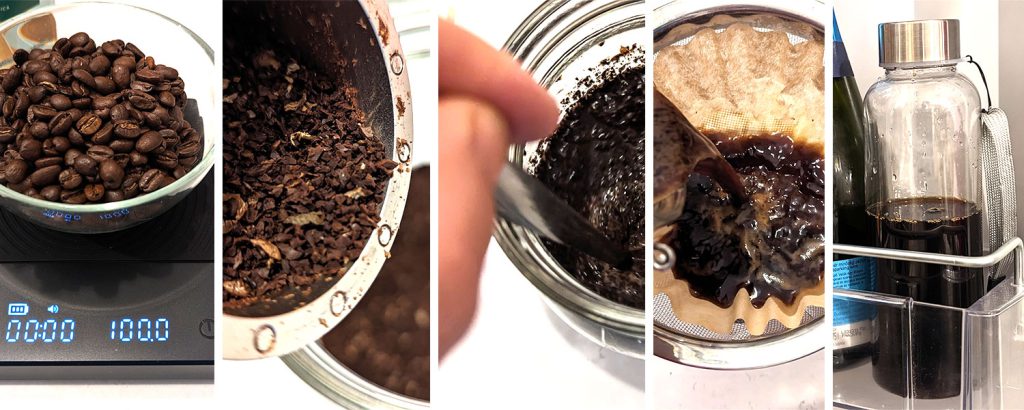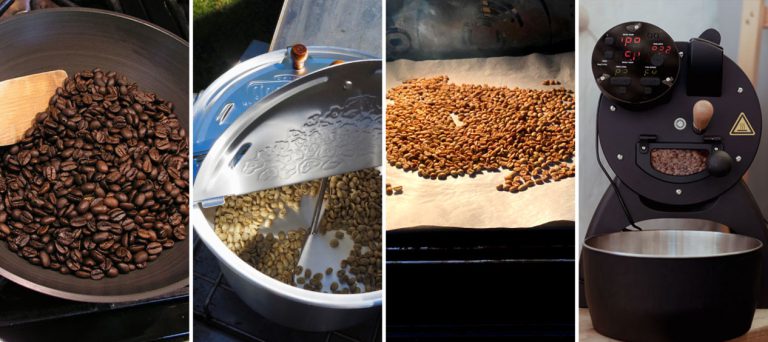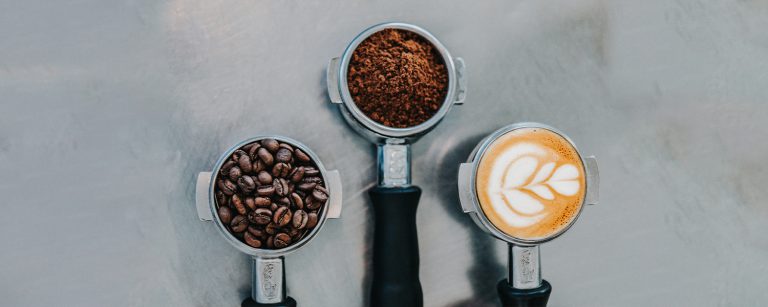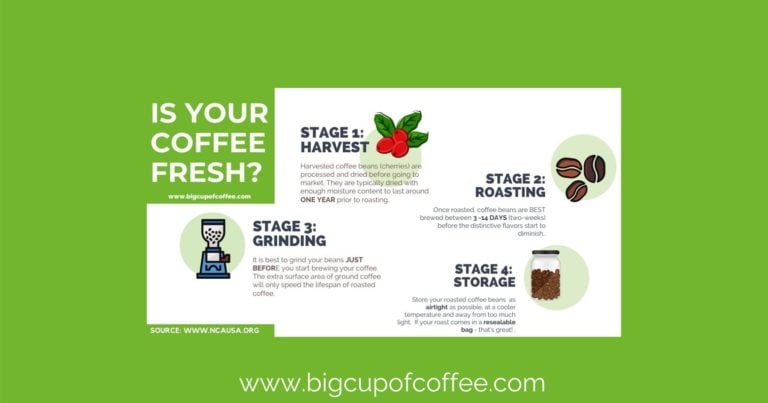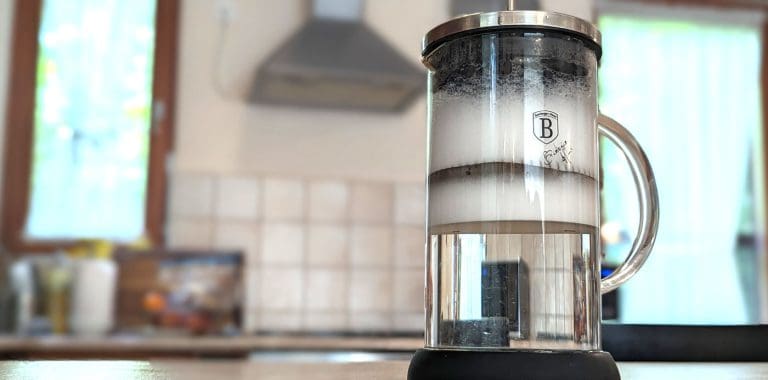Cold Brew vs Iced Coffee: Both Are Delicious But What’s The Difference?
Nothing perks me up for my daily endeavors as a delicious cup of hot coffee, except for unbearably hot days. Good thing, I can go for a cold coffee beverage instead. One thing I noticed though is that people are often confused by iced coffee and cold brew.
What really makes them different from each other, and which one is better?
If you’re also confused, don’t worry, because I’ll be giving you the cold hard facts in this cold brew vs iced coffee contest. So sit back and chill as I discuss these two popular coffee drinks.
The Main Difference Between Cold Brew and Iced Coffee
Let’s get straight to the point, the main difference between cold brew and iced coffee is the process by which they are brewed and served.
- Iced coffee refers to any coffee that has been brewed with hot water, then cooled down and poured over ice.
- Cold brew is more specific in its process, where you immerse coarse-ground coffee in room temperature or cold water and let it steep for about 12 to 24 hours before serving or storing.
Cold brew is often made with a higher coffee-to-water ratio for a more concentrated coffee that you can then dilute with water or milk, or serve over ice once it’s ready. So cold brew can be served as iced coffee, but iced coffee isn’t always cold brewed 😉
Comparing Flavors of Iced Coffee and Cold Brew Coffee
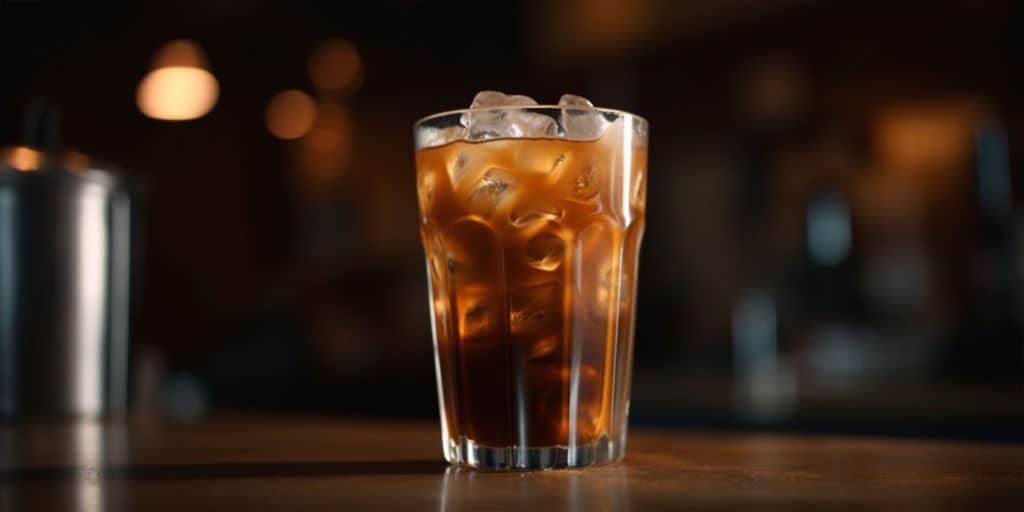
So how does each one fare in flavor and strength? Iced coffee can often have more acidity and bitterness due to the hot brewing process that extracted those qualities from the coffee beans. However, serving it over ice helps dilute the flavors for a more balanced cup.
Then you have the cold brew, which is generally less acidic and bitter with a hint of sweetness, which could all be attributed to the immersion process that uses a long steeping time instead of heat in extracting the flavors of your ground coffee. Another variant of this drink is the Nitro cold brew, which simply has nitrogen gas added to the recipe.
It’s worth noting though that since you can use different coffees for iced coffee, you can make one from your favorite drinks including pure espresso or lattes. This could give it the edge over cold brew in terms of richness in flavor.
Caffeine Content & Health Benefits
As for the caffeine content, cold brew generally has higher caffeine levels, about 200 mg per 16 ounces, as it also uses a higher brew ratio compared to other brewing methods.
Meanwhile, the caffeine in iced coffee typically depends on the type of coffee brewing method and brew ratio used for its base.
What I like about cold brew though is that I can control it better than iced coffee. Cold brew often uses the 1:4 ratio, but you can go for a higher ratio of 2:1 or 1:1 to make a cold brew concentrate.
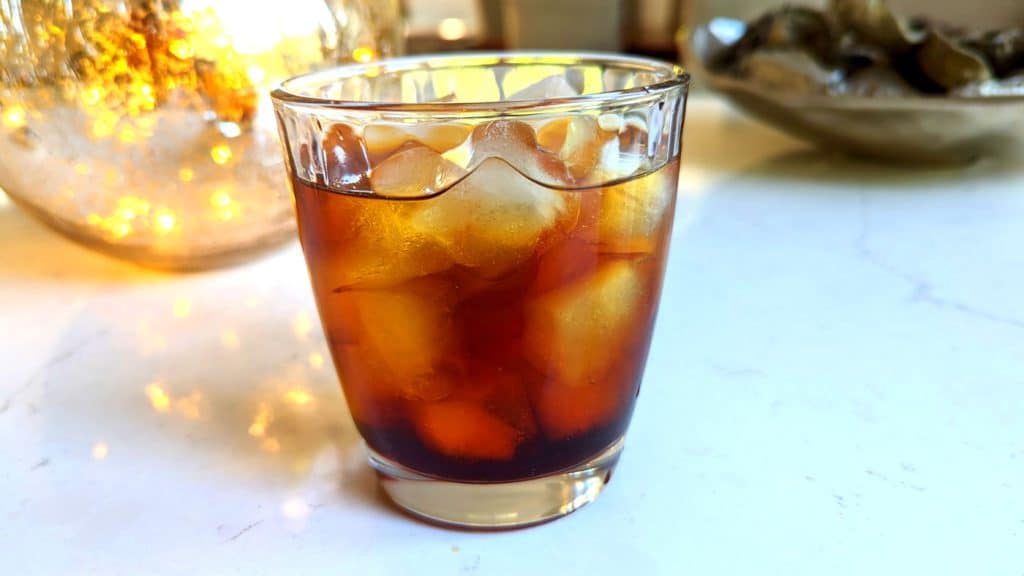
Since it lasts long in the fridge, you can then get small batches from your concentrate and dilute them with your desired amount of water or ice. If I want hot coffee, I can also heat it up over the stove before serving, making this brewed coffee dual-purpose depending on your mood or the weather.
Health-conscious coffee drinkers might also wonder if cold brew coffee is any healthier than iced coffee. Frank Hu, a nutrition expert at Harvard, says that cold brew is just as healthy as regular coffee. Here’s a list of health benefits that you can get from your coffee.
Brewing and Storing
Both cold brew and iced coffee are usually available at your local coffee shop, but if you’re making yours at home, it’s also important to note the difference between the two in terms of ease of preparation.
In this regard, iced coffee wins hands down. It’s as simple as making regular hot brewed coffee and then allowing it to chill before serving over ice—a quick solution that doesn’t require long waiting times or any special equipment (even your typical drip coffee maker works).
While it takes longer to make cold brew, it’s also a pretty straightforward process:
- Combine the coffee grounds and cold water in a clear jar or pitcher.
- Stir gently to ensure even saturation.
- Steep in the refrigerator for 12 to 24 hours.
- Strain with a mesh filter as you pour it into another container.
- Serve with ice and add milk or other flavorings if desired.
You can also use an AeroPress or French press for making cold brew. When using the AeroPress or AeroPress Clear, you can even produce cold brew coffee in just a few minutes by following my recipe. Thanks to the brand new AeroPress XL, you can even upsize your batch with its 590 ml capacity. Read my AeroPress XL review to learn more.
It’s the preservation capabilities that really sets cold brew apart from iced coffee, and other brewing methods out there. Cold brew concentrate can stay refrigerated for up to 10 days, unlike regular coffee with ice which should be consumed right away for the best experience.
Costs Compared
Iced coffee is typically more affordable than cold brew since it’s as simple as brewing hot coffee and cooling it down with ice. This makes it more cost-effective for both home brewing and purchasing from a café.
On the other hand, cold brew requires more time, effort, and resources to make. Due to the specialized brewing method required for cold brew, you can expect higher prices when buying it from your coffee shop or grocery store.
Also, the yield is quite small, as you can see in my detailed cold brew recipe.
So if budget plays a significant role in your decision-making process, iced coffee might be the more affordable option.
So, Which is Better, Cold Brew or Iced Coffee?
When comparing cold brew and iced coffee, claiming which one is better than the other is more of a subjective affair. After all, each has its own advantages and drawbacks.
Iced coffee is generally more affordable and easier to make, but if you’re using regular coffee thrown in with some ice cubes, the flavor could be a bit lackluster. As for the cold brew, it’s typically less acidic and comes with notes of sweetness in your cup, but it’s pricier and would really require your patience.
Conclusion
At the end of the day, both iced coffee and cold brew can cater to your coffee cravings if you want to cool down and get that caffeine kick at the same time. It’s really up to your personal taste and preferences which one to go with.
Personally, I enjoy both drinks in different circumstances. When I just want to have something cold to drink ASAP, I fix myself an iced coffee. If I feel picky and have the time to spare, I make a batch of cold brew that I can drink as iced or hot coffee throughout the week, depending on my mood.
But that’s just me. I recommend that you give both a try to know which one you like more. And feel free to share the results in the comments below.

